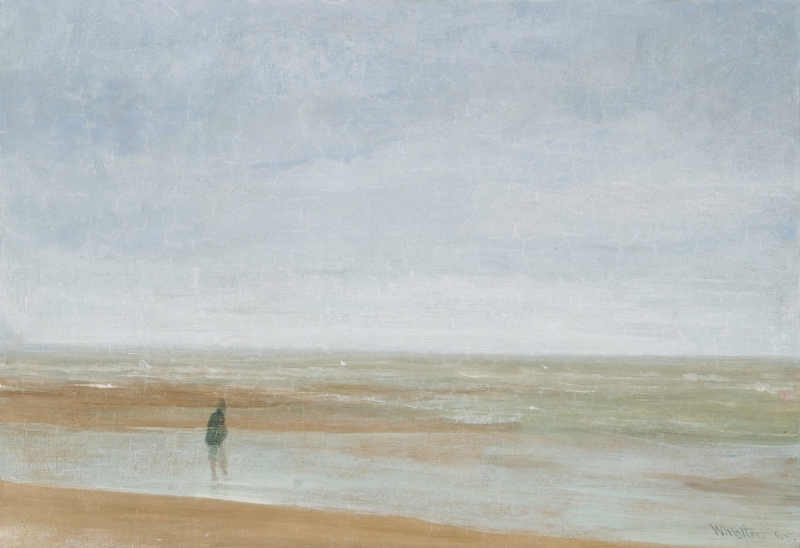Composition
The composition is almost identical to that in Harmony in Blue and Silver: Trouville [YMSM 064].
Technique
It was painted on fine canvas. The size of the canvas, like that of Blue and Silver: Trouville [YMSM 066], corresponds fairly closely with that of the French 'toile de vingt' (73 x 50 cm, marine) and it was probably acquired in France.
According to Nesta Spink the canvas has a white ground and the pigments were limited to cobalt blue, iron-oxide yellow, vermilion and bone black, mixed with white lead or calcium carbonate. 1 The paint surface is well worked, matt, with very little impasto. The effect of the pale blue and ochre beach, punctuated by the small grey figure, is luminous and atmospheric. The figure was originally 7 mm (¼") to the left.
The University of Michigan website comments:
'Although Whistler had embraced the tenets of Realism early in his career, by 1865 he had begun to evolve his own painting style that departed from the vigorous brushwork and heavy impasto of Courbet's example. This work, painted in the older artist's company, exhibits Whistler's characteristic thin veils of paint that evoke the atmosphere along the coastline rather than minutely describe it. The presence of the man implies no narrative story but is a precisely placed accent within the composition. Whistler's credo of "art for art's sake" has already shaped how he portrays a cloudy day at a summer retreat.' 2
Conservation History
Unknown.
Frame
Whistler suggested that his picture restorer, Stephen Richards (1844-1900), should look at it, and Frederick Henry Grau (1859-1892) reglaze it, for exhibition in 1892, but it is not known if anything was done at that time. 3
Last updated: 11th November 2021 by Margaret







